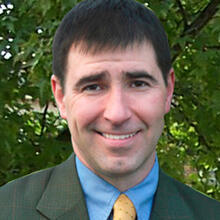“Can one vote for Romney if it means a 6 or 7 or, God forbid, 8 percent increase in the number of abortions in America? If it means ANY increase in the abortion rate? If it means thousands of new deaths among the unborn?”
Steve Schneck’s argument at a Democrats for Life Panel in Charlotte are lighting up the right-wing Catholic blogosphere. Schneck’s explosive argument is that policies for the poor affect the abortion rate. Cuts to Medicaid and the ACA will increase abortions.
“The most powerful abortifacient in America is poverty.”
“The abortion rate is 300% higher below the poverty line. More than 3 out of 4 women who choose abortions cite economic reasons for their decision. Examples from other countries around the globe have demonstrated that effective social programs and health care for the poor correlate with much lower incidence of abortion.”
Schneck casts much needed light on how abortion functions as a political issue. Over the years, I’ve spoken with many committed and knowledgeable Prolife activists, who can recount and critique the various strategy and policy positions the movement has made. They know the issues and the political tradeoffs. (It’s encouraging to see similar reflection in some of the comments on the CatholicVote site referenced above.) But for so much of our politics, it’s simply a moral posture. “Prolife” Republicans have been in power repeatedly since 1980 and have spent virtually no political capital on policies that address abortion in significant numbers. It’s a posture that need have no relationship to outcomes.
Schneck forces us to think about outcomes. He catalogues the proposed policies of Romney and Ryan that will cut coverage for poor pregnant women:
They will rescind the Affordable Care Act – including its $250 M pregnancy assistance fund “to help at-risk women have their babies,” it’s tripling the level of the adoption credit, it’s funding for Community Health Centers.
Above all though, their proposals for Medicaid will have a grave impact on the abortion rate. Medicaid currently pays for 2/3rds of all births. Romney and Ryan’s budget will cut Medicaid by 29% in the next four years and 40% in the next ten. Proportionately, that means more than a quarter of all current births will no longer be paid for. What will poor women do? Schneck states the obvious, “Pregnancies are expensive. The medical costs of newborns are expensive. An abortion by contrast costs hardly anything at all.”
As I’ve argued before, focusing on supporting women’s choices to have a child is a place where Prolife and Prochoice folk can work together. I've been amazed at how the conversation changes when you move to discussing the real pressures and constraints women face with unplanned pregnancies and what we as a society can and must do to help them.
Schneck’s argument is dangerous to those who want to use abortion as a moral shibboleth. If abortion is a real policy issue about women and children, the calculus becomes much more difficult. Moving from checking the right box (in time for one’s candidacy) to arguing about outcomes can only be a win for the Prolife movement.







